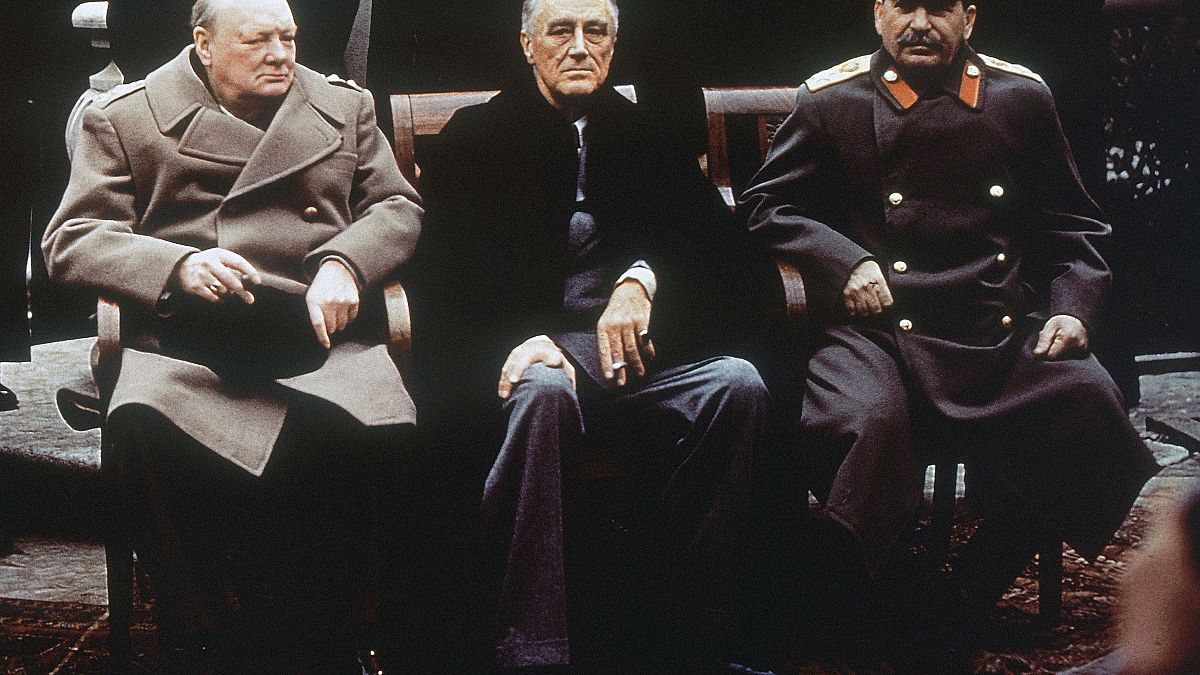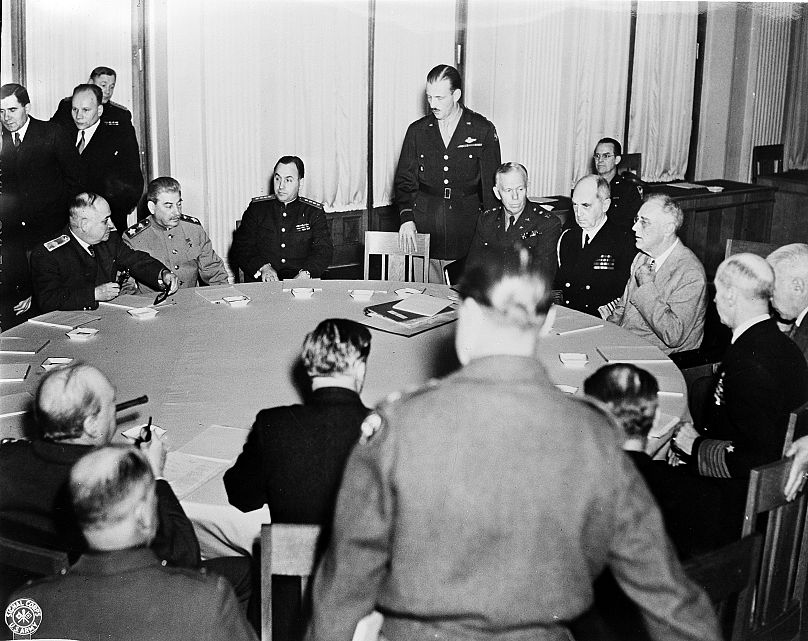Winston Churchill, Franklin Roosevelt and Joseph Stalin met in Crimea on February 4, 1945. They carved up Germany, Europe and reshaped the world order.
On February 4, 1945, as the defeat of the Nazi regime was within reach, the three main Allied leaders convened in the Crimean resort town of Yalta for a week-long summit that set the scene for the decades-long Cold War.
Nazi regime at an end
As February 1945 dawned, Adolf Hitler's Nazi regime was unravelling. Allied powers were pushing into Germany from the west after landing in Normandy and Provence months earlier, while in the east, Soviet troops had reached Poland.
The outcome of the war was by then, a foregone conclusion. Germany capitulated just three months later on May 7, a week after Hitler killed himself in a Berlin bunker.
Who attended Yalta?
In attendance at the Livadia Palace in Yalta were British Prime Minister Winston Churchill, American President Franklin D. Roosevelt and Soviet leader Josef Stalin.
The three had previously convened for a summit in Tehran, Iran, in late 1943.
What was agreed at Yalta?
The main outcome of the Yalta Conference was the division of Germany into occupied zones administered by British, French, Soviet and US forces.
The leaders also decided that the German military machine would be confiscated or abolished and that major war criminals ought to be tried by an international court. A commission as also set up to determine reparations.
After the issue of Germany was settled, the three leaders turned to Europe.
At a previous meeting in Moscow in October 1944, Churchill and Stalin had agreed to carve up Europe into zones of influence but it was decided in Yalta that countries in eastern Europe — including Bulgaria, Poland, Czechoslovakia, Hungary and Romania — would be allowed to hold free elections. Poland, however, would cede some of its territory to the USSR.
Roosevelt, who believed the Soviet Union would be needed to defeat Japan after the collapse of Nazi Germany, also agreed that the USSR would reclaim islands Japan had won at the turn of the century.
Finally, the three leaders continued talks on how the United Nations would operate with Stalin agreeing to join.
"Never before have the major allies been more closely united — not only in their war aims but also in their peace aims. And they are determined to continue to be united, to be united with each other — and with all peace-loving nations — so that the ideal of lasting peace will become a reality," Roosevelt told the US Congress after the summit.
What happened after Yalta?
Not everything, however, went according to plan. The leadership in Britain and the US changed quickly. Churchill was unseated in the July 1945 general election while Roosevelt died of a brain haemorrhage just two months after the summit.
Roosevelt had also underestimated the consequences of the atomic bombings of Hiroshima and Nagasaki and how the Soviet Union would therefore not need to join the war against Japan.
Meanwhile, Stalin, whose forces occupied much of eastern Europe at the end of the war, reneged on his pledge to hold for free and democratic elections and instead established communist parties across eastern Europe.
Two years later, Harry Truman, who succeeded Roosevelt at the White House, unveiled his doctrine to check the Soviet ideological expansion.
The Cold War had started.

